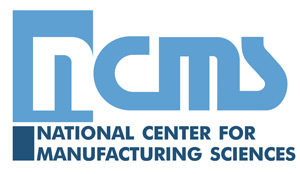U.S. Marine Corps Distributed Collaboration for Maintenance, Logistics, and Sustainment Improvement – Phase II
NCMS Project #: 140978
Problem: The maintenance and sustainment community has depended on networking, feedback, and sharing of best practices to forward the innovations that can increase the productive life of critical assets. Now technology has allowed for an alternative option for in-person events, to now occur through the Internet.
Benefit: By using information gathered by technologically empowered tools, should assist organizations to make informed decisions that could make them more competitive and reflect positively on their bottom line. The maintenance and sustainment community depend on collaboration to make it stronger, safer, and efficient. The Powernoodle® tool is an excellent platform that experts such as the FIIRE Team can utilize to leverage focused and pinpointed information.
Solution/Approach: The objective of this project is to demonstrate that by using innovative technology to facilitate group thought and collective knowledge, critical updates to lifecycle sustainment focused policies and procedures can be made more effectively and efficiently. By leveraging existing events where experts are already likely to be, costs will be reduced, and a layer of import to the venue will be established. UGG Decision Facilitators will use Powernoodle®, a cloud-based platform that manages a sequence of decision-facilitating actions, to identify problem areas, evaluate their relevance and importance, and elicit resolution actions among participants.
Impact on Warfighter:
- Faster communication and problem-solving
- Improve efficiencies with focused-lists of manageable, relevant, and consensus-based maintenance initiatives
- Streamline ground ordnance, maintenance and sustainment policies
- Reduce costs
- Improve warfighter readiness
DOD Participation:
- U.S. Marine Corps, HQMC I&L, LPC-1
Industry Participation:
- United Global Group (UGG)
- NCMS
Benefit Area(s):
- Cost savings
- Maintenance avoidance and reliability
- Maintenance management improvement
- Improved readiness
- Reliability improvement
Focus Area:
- Reliability improvement
